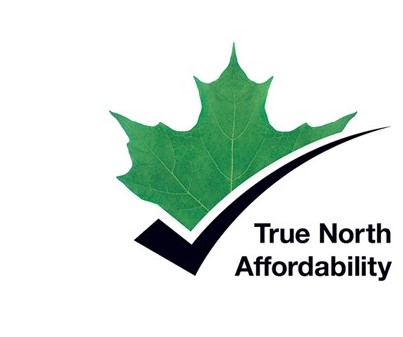
Critics say that claim is misguided
VANCOUVER – Telus’s claim that it has reached, on one of its wireless plans, a 25% reduction in price, as promised to Canadians by the Liberal government, is wrong, according to critics, because the intent was always for a further reduction in prices from December 2019.
This month, Telus created a page on its website advertising that its Peace of Mind plan for a family of four, with 10 GB of data each, with an annual cost of $2,880 meets and beats the Liberal government’s annual goal of reducing wireless prices by 25% – using a baseline annual cost of $2929.68 after savings as indicated from the Liberal platform.
But Telus’ claim – branded as “True North Affordability” – that it exceeded the Liberal’s goal of reducing prices by is being panned by some as a disingenuous claim because the figures used in the Liberal’s platform was just an example and not a concrete starting point for the telecoms to use.
Hans Palmer, a spokesman for Innovation Canada (formerly ISED), only had to say that the government “is looking forward to working with companies on achieving its goal of reducing prices for Canadian consumers and will have more to say on the benchmark in the near future.”
Telus did not respond to repeated requests for comment.
“The very reason that Minister Bains had to reference the December 2019 numbers as the government’s reference point, is that the data on the costs of cell phones in Canada is years behind,” said Laura Tribe, advocacy group OpenMedia’s executive director.
“The Minister has made it clear that reductions of 25% to meet the government’s targets will be measured as of price reductions from December 2019, which is fairly comparable to current prices,” Tribe added.
Immediately following the release of the Liberal government’s wireless plan, analysts at Scotiabank and TD bank noted that unlimited plans launched in the fall had already effectively propelled the wireless players to a 25% reduction. That, of course, was before Bains set the price reduction starting point at December.
One consultant, who asked to remain anonymous, said the price points the Liberals used is so old – from ISED’s 2018 commissioned study – that it wouldn’t make sense for them to be used as a starting point. Plus, the relatively low 2GB and 5GB plans referenced by the governing party also don’t factor increased data allowances provided by last summer’s introduction of unlimited data plans.
Other uncertainties include whether or not Telus or the Liberal plans include smartphones or not in their plans, which could be a significant indicator of what comparable savings can be made. The Telus plans are on a bring-your-own-device platform, while the Liberals baked-in devices from the telecoms as part of the service plan – further muddying the comparability of the Telus and Liberal plans.
John Lawford, executive director of the Public Interest Advocacy Centre, said Telus may be trying to get ahead of the CRTC’s wireless review next week, which will further discuss whether mobile virtual network operators (MVNOs) should be mandated to enhance competition and further drive down wireless prices.
“Telus is a savvy player in the regulatory sphere; they did it on purpose,” Lawford said on the phone. “They are signaling to the markets, firstly, that they have a story to tell to the CRTC that will satisfy, according to them, unreasonable requests to reduce their prices because look, they’ve done it.”
TekSavvy’s vice-president of regulatory and carrier affairs Andy-Kaplan Myrth said he’s “confident the CRTC and the government will see through this transparent attempt to avoid regulation.
“What Canada needs is sustainable, meaningful competition, which will come from structural change to the competitive landscape so that prices can’t be inflated by a small number of super profitable incumbents in the first place,” he added.
When reached for comment about whether it agrees with Telus’s methodology, a Bell spokesman said “wireless prices in Canada have fallen significantly over the past several years – CRTC data shows by up to 35% from 2016 to 2018 alone – and continue to decline with unlimited data plans offering even more value. We wouldn’t comment on a competitor’s pricing.”
Bell executives had already signaled in a conference call last year that the company would raise the fact that prices have been declining over the past couple of years during the wireless hearing later this month. Telus may be trying to bolster that argument with this latest move.
Rogers noted its price of wireless data has gone down 50% in the last five years, while unlimited plans introduced last summer had the effect of reducing prices by 25% already.


